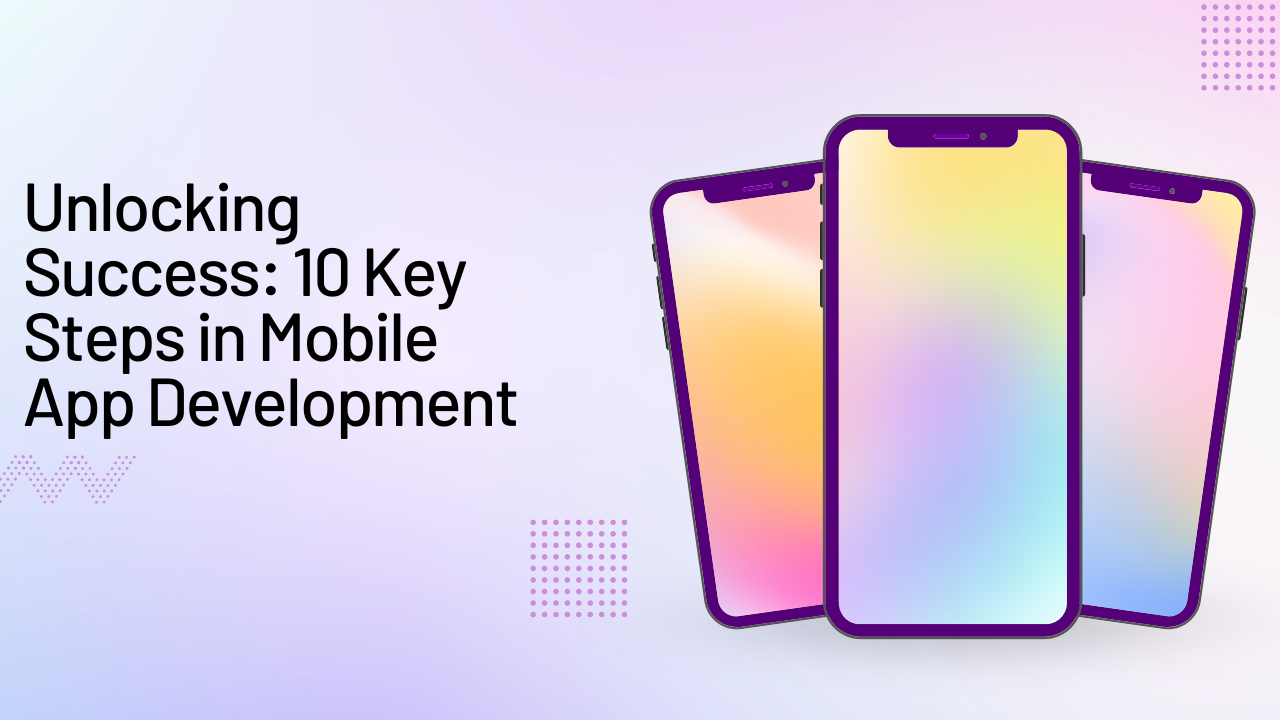SEO Meta Description:
Explore the world of Mobile app development and learn essential strategies for success. Discover how to harness the power of technology to create innovative and impactful mobile applications.

Table of Contents
Introduction: In today’s digital age, mobile apps have become indispensable tools for businesses and individuals alike. Whether it’s enhancing productivity, connecting with customers, or providing entertainment, the demand for mobile apps continues to soar. However, navigating the landscape of mobile app development can be daunting without the right guidance. In this comprehensive guide, we delve into the intricacies of mobile app development, providing insights and strategies to help you unlock success.
1. Understanding the Mobile App Landscape
Mobile app development encompasses a wide array of technologies and platforms. From native to hybrid apps, understanding the landscape is crucial for making informed decisions. Dive into the world of iOS and Android development, exploring their strengths and weaknesses.
2. Defining Your App’s Purpose
Before diving into development, it’s essential to define the purpose of your app. Identify your target audience, understand their needs, and outline the core features that will make your app stand out in the market.
3. Planning and Prototyping
A solid plan lays the foundation for a successful app. Learn how to create wireframes and prototypes to visualize your app’s user interface and functionality. This stage is critical for gathering feedback and refining your ideas.
4. User Experience (UX) Design
User experience plays a pivotal role in the success of any mobile app. Explore UX design principles and best practices to create intuitive and user-friendly interfaces that keep users engaged and satisfied.
5. Backend Development
Behind every great mobile app lies a robust backend infrastructure. Discover the key components of backend development, including server setup, database management, and API integration.
6. Frontend Development
The frontend is the face of your app, where users interact with your product. Learn how to implement captivating designs and seamless navigation to create a compelling user experience.
7. Testing and Quality Assurance
Testing is an integral part of the development process, ensuring that your app functions flawlessly across various devices and scenarios. Explore different testing methodologies and tools to identify and rectify bugs and performance issues.
8. Deployment and Distribution
Bringing your app to market requires careful planning and execution. From app store submission to marketing strategies, discover the steps involved in deploying and distributing your app to a global audience.
9. User Feedback and Iteration
The journey doesn’t end after the app is launched. Continuously gather user feedback and iterate on your app to address pain points and enhance features based on real-world usage.
10. Maintenance and Updates
The mobile app landscape is constantly evolving, requiring regular maintenance and updates to stay competitive. Learn how to monitor app performance, implement security patches, and roll out new features to keep users engaged.
Mobile App Development: Building the Future
Mobile app development is a dynamic and rewarding field that offers endless possibilities for innovation and growth. By following these key steps and embracing the latest technologies, you can turn your vision into reality and create mobile apps that make a lasting impact.
FAQs (Frequently Asked Questions)
How long does it take to develop a mobile app? The development timeline varies depending on the complexity of the app, ranging from a few weeks to several months.
Do I need coding skills to develop a mobile app? While coding skills are beneficial, there are various tools and platforms available that allow for app development without extensive coding knowledge.
What is the cost of developing a mobile app? The cost of app development depends on factors such as features, complexity, and development time. It’s essential to budget accordingly and prioritize features based on your budget.
How can I monetize my mobile app? There are several monetization strategies for mobile apps, including in-app purchases, subscriptions, advertising, and paid downloads. Choose the method that aligns with your app’s purpose and target audience.
Is it necessary to have a marketing strategy for my app? Yes, a marketing strategy is crucial for promoting your app and reaching your target audience. Utilize various channels such as social media, email marketing, and app store optimization to maximize visibility.
What should I do if my app faces technical issues after launch? It’s essential to have a support system in place to address technical issues promptly. Monitor user feedback, prioritize bug fixes, and communicate transparently with your users to maintain trust and loyalty.
Conclusion: Embark on your mobile app development journey with confidence, armed with the knowledge and strategies outlined in this guide. By following the ten key steps and embracing innovation, you can create mobile apps that captivate audiences and drive success in the digital age.

